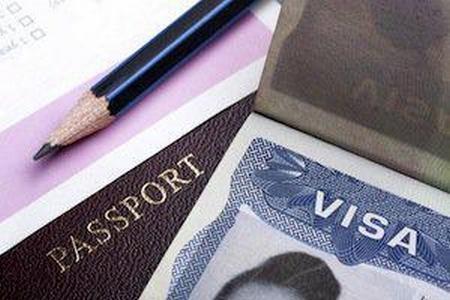Starting a New Life: K Visas
 Sometimes, one meets the person they want to marry outside their home country. This scenario has become so common that there is a U.S. visa category specifically for that purpose. If you want to marry a U.S. citizen, you will need to obtain a K visa, and it is often very helpful to have an experienced immigration attorney on your side.
Sometimes, one meets the person they want to marry outside their home country. This scenario has become so common that there is a U.S. visa category specifically for that purpose. If you want to marry a U.S. citizen, you will need to obtain a K visa, and it is often very helpful to have an experienced immigration attorney on your side.
Qualifying for a K Visa
A K visa is actually classed as a nonimmigrant visa, though the effect is the same as immigration. It is issued, as a K1, for the specific purpose of allowing a foreign-born fiancé(e) to enter the United States and marry their U.S. citizen fiancé(e). Once the fiancé(e) has entered the country, they must marry, and then adjust status to become an LPR (Lawful Permanent Resident).
The only real eligibility requirement besides being legally able to marry (of age and not already married) is that the future husband and wife (or, in the case of same-sex couples, spouse and spouse, as current immigration law now allows same-sex couples to be treated in the same way as heterosexual couples for purposes of immigration) must have met in person sometime within the two years before the K1 petition was filed. However, there are exceptions to this rule; you will not be expected to have met if it would be alien to your fiancé(e)'s culture or religion, or it would cause undue hardship to you or him/her to do so.
The petition first must be filed by the U.S. citizen in the United States. The fiancé(e) may submit their information from abroad, but the actual formal petition must be submitted in the U.S., and not to a consulate or embassy. Once both halves of the petition are filed, the fiancé(e) and any minor children they may have (who can be included on the petition) will attend an interview with a consular officer. The consul will investigate their situation, and verify the information they are submitting (including whether or not the relationship appears legitimate). They will take any documents, including proof that the incoming immigrant(s) will be financially supported by either themselves or the U.S. citizen fiancé(e).
After that, if the consul is satisfied, the visa will be granted, and the fiancé(e) will be able to immigrate. However, one criteria upon which visa issuance is conditional is that the wedding must take place within 90 days after the fiancé(e) enters the country. Otherwise, the fiancé(e) will be subject to removal proceedings, as fiancé(e) status cannot be extended.
Important Consideration
Something to keep in mind is that a K1 visa is not your only option. If you decide to marry outside the United States (for example, in your fiancé(e)’s home country), your new spouse may apply for a K3 visa. K3s are for the spouses of U.S. citizens who are currently waiting for their petitions to be approved by the immigration office. The advantage of a K3 over a K1 is that you can wait for permanent residence while you are inside the country, surrounded by family. There is no family separation, and you already are legally married, so you have some status to begin with.
If you are in need of help with a K visa of any kind, the DuPage County lawyers of Mevorah & Giglio Law Offices can help. Please do not hesitate to contact us for a consultation.
 English,
English,
 Spanish,
Spanish,
 Polish,
Polish,
 Urdu
Urdu













 Make a Payment
Make a Payment



